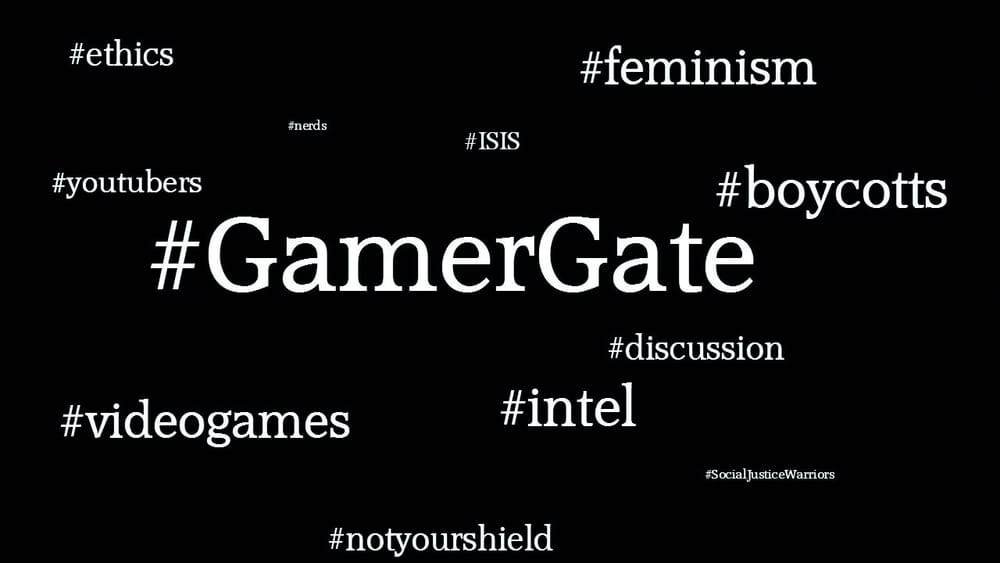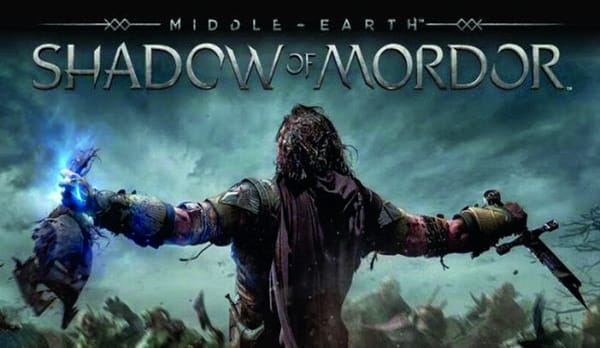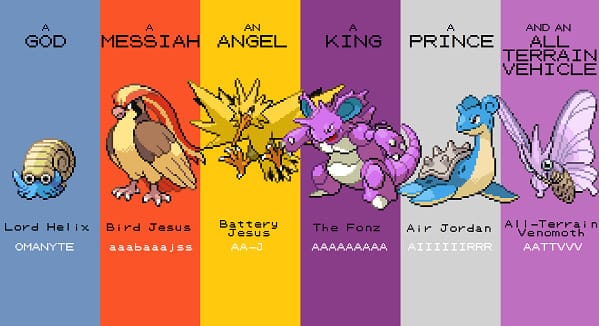GamerGate: not about ethics in journalism
Social Justice Wizard Tom Rivlin gazes into the internet abyss

Anyone with an interest in feminism, social media, video games or nerd culture in general has probably heard this term over the past few months: GamerGate. What exactly is it? Why is it so awful? To get to the bottom of this we need to take a long, ugly look at gaming culture…
The short version of the story behind the Twitter hashtag is as follows: Zoe Quinn, an indie game developer, was accused by her ex-boyfriend of cheating on him in a long, ranting blog post. She was accused of sleeping with a reviewer for the popular gaming website Kotaku. The internet (mostly 4chan and Reddit) ran with this, accusing her of sleeping with said journalist in order to get a good review for her game (it turns out he never reviewed her game, of course).
At around that time, feminist critic Anita Sarkeesian released the latest in her long series of videos highlighting systemic sexism in popular games. Also around this time, there were several opinion pieces by games journalists with provocative titles like “Gaming is Dead”, and “There are no more Gamers”. They may not have been wrong.
Here’s the deal: video games used to be a niche hobby only we nerds did, but now everyone plays them, from your toddler cousin to your grandma. Before it was cool, the community defined a term to describe themselves: gamers. It was simple: anyone who played video games was a gamer, everyone else wasn’t.
These days, however, it’s become a lot harder to pin the term down. Is a businessman who plays Candy Crush on his morning commute a gamer? Or do you need to have beaten Halo 3 on Legendary difficulty? Clearly the answer is somewhere in the middle, and whenever that’s the case you get disagreement. Many gamers use the term ‘casual’ (in a derogatory way) to describe people who play games but don’t fit their idea of what a ‘gamer’ is. Mostly this means they don’t own a console or dedicated gaming PC.
It may seem silly, but words have power, especially labels people use for themselves. Just think of how often a new letter is added to ‘LGBTQ+’! Many (self-identified) gamers see their hobby as escapism from less-than-ideal lives. To them, the ‘dilution’ of the term undermines an identity that they’ve invested heavily in, meaning these opinion pieces were a direct attack on not just their hobby, but their way of life. Of course, all the writers were really saying was that gaming is no longer niche, and wondering whether we need a word to describe gamers when everyone is one, but you can see how the conflict arose.
All these things combined together to form a perception that games journalists had somehow ‘betrayed’ the gaming community they catered to and came from. People were shocked to learn that some game journalists were friends! Their review of GTAV might be their personal opinions, possibly influenced by people they know, instead of some abstract ‘objective’ review. They thought any mention of social issues like feminism, diversity, or inclusivity must be evidence of journalists working together to promote their own ideology, not realising, of course, that this is just the zeitgeist of 2014. In short, these people have no idea how reviews of works of art work, and are asking for something impossible.
This insane mess is all driven by a thoroughly anti-feminist worldview, if that’s not already clear. GamerGaters will deny this, of course. “Actually it’s about ethics in games journalism” has been used as a stock response by them to the point of parody. GamerGaters (i.e. anyone who uses the hashtag and supports the call for boycotting of ‘compromised’ websites) have been in their 4chan/Reddit echo chamber for so long they don’t realise how backwards what they believe sounds to the outside world.
The ‘villains’ to GamerGate are the Social Justice Warriors (SJWs): their pet name for anyone who wants crazy things like well-developed female characters, racially diverse game protagonists, less overly-sexualised imagery in blockbuster games; basically anything a sensible person would see as obviously a good thing. All of this is anathema to GamerGate.
If this all sounds harsh, it’s because it’s deserved. Quinn and Sarkeesian had received abuse and credible death threats, had their personal information leaked online (‘doxxed’) and their websites hacked before all of this started. After GamerGate began (the hashtag was coined by actor and vocal homophobe Adam Baldwin in August) the torrent of abuse grew and spread to others, mostly women (but also many men who stood up for them).
A great example is how actor and ‘nerd-celebrity’ Wil Wheaton was vocally anti-Gamergate for weeks with no harassment, but as soon as his friend and colleague Felicia Day came out against the movement, she was doxxed and abused incessantly.
Some female game developers have even quit the industry as a result. Who can blame them? Is it worth putting up with all this to make games that people will hate because they hate you? GamerGaters claim it’s about their SJW agenda, but it’s really about their gender.
GamerGaters, of course, claim these women are lying about being abused, have faked it all for attention, and are ‘professional victims’. Sarkeesian’s response to this is at once a stirring quote, and a shocking reminder of how bad things are: “one of the most radical things you can do, is to actually believe women when they tell you about their experiences”.
Although it’s died down a bit by now, the abuse has not stopped for these people. Every day is a day they have to wonder if that last death threat was credible or not. But there is a bright side: heavy-hitter mainstream media have taken an interest in this story. Sarkeesian has been interviewed by news sources from the _New York Times _to The Colbert Report, and has spoken at various conventions. Her story is being told and people are listening.
Seeing this level of harassment has shown many people why feminism is still necessary. GamerGate has introduced so many to feminist issues it’s a wonder why no one’s suggested it was a ‘false flag’ by the SJWs all along. At points GamerGate made me ashamed of calling myself a gamer, but deep down I know we’re better than that, and I’m proud.









